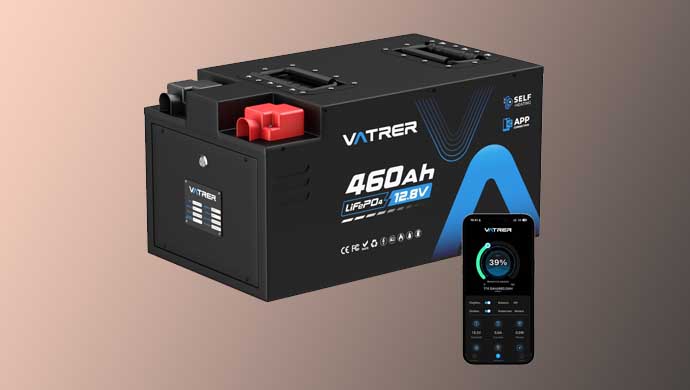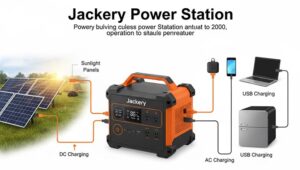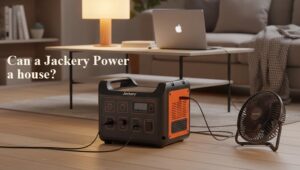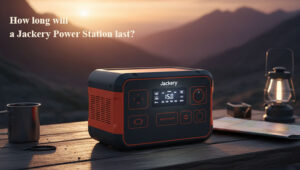Lithium Iron Phosphate (LiFePO₄) batteries are a special type of lithium battery known for being safer, longer-lasting, and more reliable than traditional lithium-ion options.
Unlike the standard lithium cobalt batteries used in phones or laptops, LiFePO₄ batteries are built to handle more charge cycles, often over 3,000 to 5,000 times, making them ideal for solar generators, RVs, home backup systems, and off-grid living.
Why Are They Popular?
People across the U.S, Canada, and the UK are choosing lithium iron phosphate batteries because:
- Lithium iron phosphate batteries don’t overheat easily, reducing fire risk.
- Lithium iron phosphate batteries last for years, even with daily use.
- Lithium iron phosphate batteries deliver consistent power, even in tough weather.
They’re eco-friendlier and contain no harmful heavy metals.
Where You’ll Find Them
Many top-rated portable power stations on Amazon now use LiFePO₄ batteries. If you’re shopping for reliable backup power, especially for emergencies or camping, this battery type is worth the investment.
Frequently Asked Questions (FAQs)
1. In short what is a Lithium Iron Phosphate (LiFePO₄) battery?
A LiFePO₄ battery is a type of lithium-ion battery that uses lithium iron phosphate as the cathode material.
2. What are the advantages of LiFePO₄ batteries over regular lithium-ion batteries?
Longer lifespan (up to 4,000+ cycles)
Better thermal stability (less prone to overheating)
Higher safety (resistant to fire/explosions)
Consistent power output
Eco-friendly (non-toxic and recyclable materials)
3. How long do LiFePO₄ batteries last?
LiFePO₄ batteries typically last 3,000–5,000 cycles, which can mean 10+ years depending on usage.
4. Are LiFePO₄ batteries safe?
Yes, they are considered one of the safest lithium battery types.
5. Can I use LiFePO₄ batteries in solar power systems or RVs?
Absolutely. They are perfect for solar energy storage, RVs, boats, backup power stations, and off-grid setups.
6. Do LiFePO₄ batteries need a special charger?
It’s best to use a LiFePO₄-compatible charger.
7. Are LiFePO₄ batteries affected by cold temperatures?
Yes, like all batteries, performance drops in extreme cold. Most LiFePO₄ batteries shouldn’t be charged below 0°C (32°F) unless they have built-in low-temperature protection or heating.
8. Are LiFePO₄ batteries expensive?
They cost more upfront than lead-acid or regular lithium batteries but last much longer, so they are more cost-effective in the long run.
9. Can I replace lead-acid batteries with LiFePO₄?
Yes, LiFePO₄ batteries can be a drop-in replacement in many 12V systems, but always check voltage compatibility and charge controller settings first.
10. Is a Battery Management System (BMS) necessary?
Yes, a BMS is essential for monitoring cell voltage, temperature, charging, and discharging. Most LiFePO₄ batteries come with a built-in BMS for safety and efficiency.




